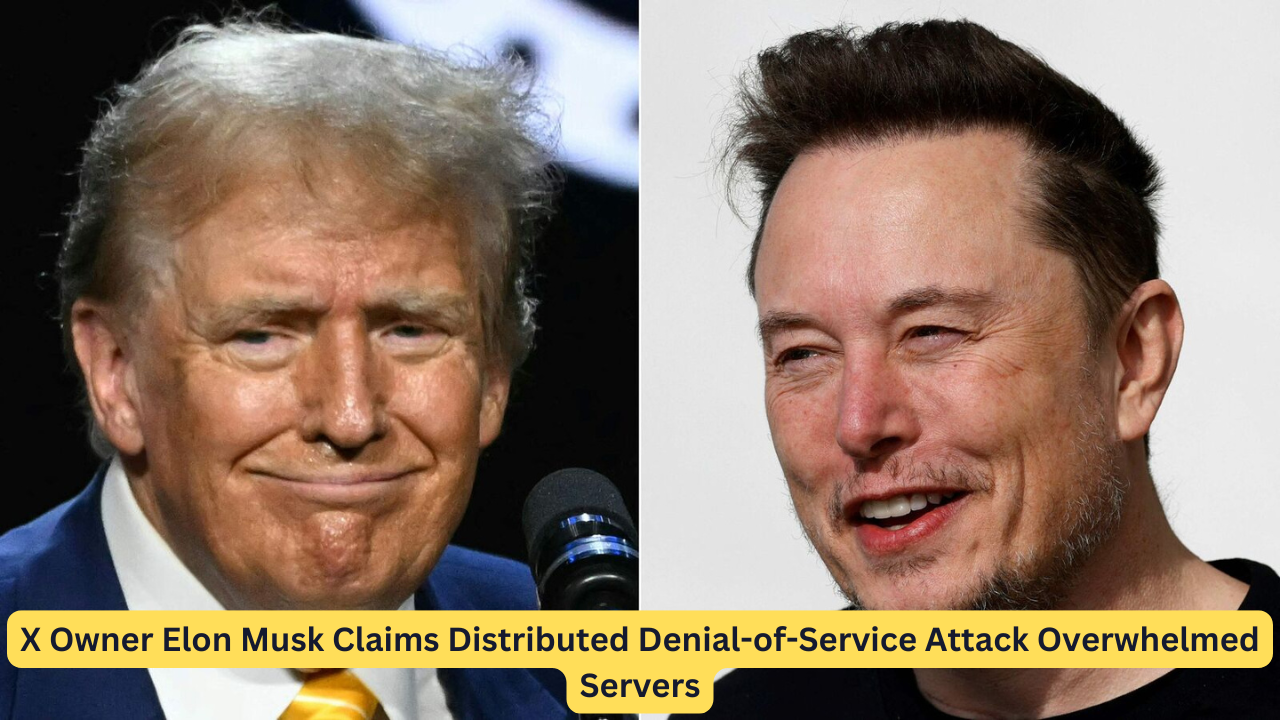X Owner Elon Musk Claims DDoS attack Overwhelmed Servers

X Owner Elon Musk Claims DDoS attack Overwhelmed Servers, In the fast-paced world of digital communication, few platforms hold as much influence as X, formerly known as Twitter. Recently, Elon Musk, the owner of X, claimed that a distributed denial-of-service (DDoS) attack had overwhelmed the company’s servers, creating a temporary disruption in service. This event not only sheds light on the growing threat of DDoS attacks but also highlights the critical role that platforms like X play in our daily lives.
What is a DDoS Attack?
A Distributed Denial-of-Service (DDoS) attack is a malicious attempt to disrupt the normal traffic of a targeted server, service, or network by overwhelming it with a flood of internet traffic. This is often achieved by utilizing multiple compromised systems, often across the globe, to send large volumes of traffic to the target, causing a denial of service for legitimate users.
How Do DDoS Attacks Work?
DDoS attacks work by exploiting the inherent limitations of a network’s resources, such as bandwidth, memory, and processing power. Attackers typically use botnets—a network of infected computers—to send excessive requests to the target, exhausting its resources and rendering the service unavailable to users. The severity of these attacks can range from temporary service disruptions to prolonged outages, depending on the scale and complexity of the attack.
Why Are DDoS Attacks a Growing Concern?
In recent years, DDoS attacks have become increasingly common and sophisticated. Cybercriminals are continually evolving their methods, making these attacks more challenging to defend against. High-profile cases have shown that even the most robust platforms are not immune to such disruptions. The growing reliance on online services for everything from communication to financial transactions means that the impact of a successful DDoS attack can be widespread and damaging.
Elon Musk’s Statement on the DDoS Attack
Elon Musk’s claim of a DDoS attack on X raises significant concerns about the platform’s security and resilience. According to Musk, the attack temporarily overwhelmed X’s servers, causing service disruptions that affected users globally. This incident highlights the vulnerability of even the most advanced tech companies to cyber threats.
How X (Twitter) Was Affected
During the attack, many users reported difficulties accessing X, with some experiencing complete outages. For a platform that serves as a vital communication tool for millions of people, such disruptions can have far-reaching consequences. News dissemination, real-time updates, and even personal communications were affected, underlining the platform’s critical role in the global information ecosystem.
Why X is a Critical Platform
X has evolved from a simple social media platform to a powerful tool for real-time communication and public discourse. Whether it’s breaking news, political commentary, or celebrity updates, X is where the world turns for immediate information. This makes it a prime target for DDoS attacks, which can disrupt the flow of information and silence important voices.
The Risks of Centralized Platforms
The DDoS attack on X also brings to light the risks associated with centralized platforms. When a single platform holds so much power over global communication, its vulnerabilities become everyone’s problem. A successful attack doesn’t just affect the platform; it can ripple out, affecting businesses, governments, and individuals who rely on it for critical information.
The Anatomy of Server Overload
To understand why DDoS attacks are so effective, it’s important to know how servers can become overwhelmed. Servers have a finite capacity to handle requests. When that capacity is exceeded—whether by legitimate users or malicious actors—service can degrade or halt entirely. DDoS attacks are designed to push servers beyond their limits, often using sheer volume to create a bottleneck that slows or stops service.
The Broader Implications of the Attack on X
The DDoS attack on X has broader implications beyond just a temporary disruption. For businesses, the attack could mean lost revenue, disrupted marketing campaigns, and damaged reputations. For individual users, the impact could be as simple as missing an important update or as severe as being unable to access critical information during an emergency.
Immediate Measures Taken by X
In response to the attack, X quickly implemented measures to mitigate the impact and restore service. This likely included rerouting traffic, filtering out malicious requests, and increasing server capacity to handle the surge. Musk and his team communicated with users to keep them informed, emphasizing the importance of transparency during such incidents.
Insights from Cybersecurity Experts
Cybersecurity experts have weighed in on the attack, analyzing its scope and providing recommendations for preventing future incidents. Many agree that while DDoS attacks are challenging to prevent entirely, having robust defenses in place—such as load balancers, firewalls, and real-time monitoring—can help mitigate their impact.
How to Protect Yourself from DDoS Attacks
While DDoS attacks typically target large organizations, individuals and smaller businesses can also be affected. For businesses, investing in strong cybersecurity infrastructure is essential. This includes using distributed networks, regular software updates, and employing cybersecurity professionals. For individual users, the best defense is awareness—knowing the signs of a potential cyber threat and understanding how to respond.
The Intersection of Technology and Politics: The Musk-Trump Connection
The recent DDoS attack on X also intersects with the ongoing political narrative involving Elon Musk and former President Donald Trump. Their interactions on and off the platform have drawn significant attention, with some speculating that the attack could be politically motivated. The relationship between tech moguls and political figures continues to shape public perception and platform policies, raising questions about the influence of powerful individuals on digital communication.
Conclusion
The DDoS attack on X serves as a stark reminder of the vulnerabilities that come with our increasingly digital world. As platforms like X continue to play a central role in global communication, ensuring their security becomes more critical than ever. Staying informed and vigilant is not just the responsibility of tech companies but of every user who relies on these platforms.
In a world where information is power, how do we balance the need for open communication with the imperative of cybersecurity? Share your thoughts in the comments below.
FAQs
What is a DDoS attack and how does it work?
A DDoS attack is an attempt to disrupt the normal traffic of a targeted server by





One Comment